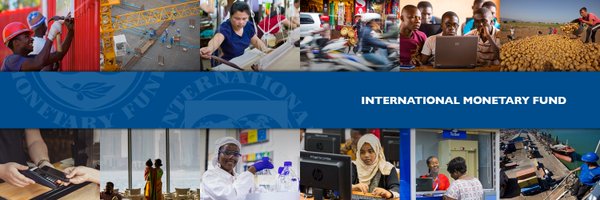 (AGENPARL) - Roma, 13 Ottobre 2022
(AGENPARL) - Roma, 13 Ottobre 2022(AGENPARL) – gio 13 ottobre 2022 [AM cover]
Dear Colleague, welcome to the October 13 briefing from the
2022 Annual Meetings
In today’s briefing, we spotlight the increased risk of fiscal crises amid turbulent bond markets, policies that can protect people from the cost-of-living crisis, reforms to reach net zero, the importance of strong institutions for resilience, conversations with the central bank governors of Colombia and the Netherlands, and more.
—————————————————————
Gaspar said policymakers face painful trade-offs as the global economy goes through turbulent times, but most countries should stay the course by tightening fiscal policy further.
Prioritizing macroeconomic and financial stability is especially relevant as recent developments in bond markets show increased sensitivity to weak or worsening fundamentals, he said.
“That raises the specter of more frequent and widespread fiscal crises.”
Vitor Gaspar and colleagues also took questions on rising food and energy costs and their impact on low-income countries with stretched resources.
—————————————————————
NUMBER OF THE DAY
Global government debt is projected to be 91 percent of GDP in 2022, 7.5 percentage points above pre-pandemic levels, despite a recent reduction in the ratio for many countries
GLOBAL GOVERNMENT DEBT
Poor households in low-income countries are the most affected by soaring food prices, the IMF’s Antoinette Sayeh said, spending about 44 percent of their budget on food compared with 16 percent in advanced economies. Governments should not just rationalize spending but also reprioritize it to privilege spending that lessens the crisis impact on the poor.
But policymakers need the support of the people to take reforms forward, or they risk social unrest.
Getting the buy-in of youth is especially important in Africa, where the cost-of-living crisis is compounding the pandemic’s impact, said AFRODAD’s Jason Braganza. If debt becomes unsustainable, governments may face a choice between servicing the debt and investing in social protection.
It’s all about creating fiscal space, Sayeh concluded. Countries in debt distress need debt relief. But governments must do their part by ensuring everyone pays their fair share, she said. Colombia’s progressive approach to tax policy—as described by panelist Gonzalo Hernández Jiménez—is a good model.
Countries must also look at spending, Sayeh added. “Don’t keep building white elephants.”
—————————————————————
Meeting the climate goals set under the Paris agreement requires an investment of $3 trillion-$6 trillion per year. But current investment stands at $630 billion—five to ten times less than what is necessary.
“If we do not shift our trajectory this decade, we are cooked,” IMF Managing Director Kristalina Georgieva told the seminar, moderated by Spain’s economy minister, Nadia Calviño.
Cooperation between global, regional, and national actors is essential to fight climate crises, but nothing is possible without climate financing.
As the OECD’s Mathias Cormann said, “Governments alone will not be able to generate necessary investment to secure the transition to net zero. We need substantial private sector investment.”
—————————————————————
Governor Timothy Antoine of the Eastern Caribbean Central Bank described resilience as “the capacity to withstand and absorb shocks, recover, and bounce forward,” and in the context of the climate crisis emphasized the need to develop policymaking capacity in relevant areas in the Caribbean and other most-affected regions around the world.
Capacity development has supported Rwanda’s economic transformation over the last thirty years but more needs to be done, said Governor John Rwangombwa of the country’s central bank. Capacity development from the Fund and partners has helped to improve key areas such as data collection and economic analysis, but work needs to continue to address new challenges from the changing global environment.
“We need to keep capacity development going with all our partners because there is still a long way to go,” Gopinath told the talk, moderated by the Director of the IMF’s Institute for Capacity Development, Dominique Desruelle.
[Quote of the Day day 3][spacer]
[ECB]
“I have no indication that with steps up to 75 basis points we would not be able to achieve our price stability mandate of 2 percent inflation over the medium-term,” added Knot.
Although there are no “convincing” signs of a wage-price spiral yet in the Euro area, Knot said that calls from workers to be compensated for loss in purchasing power are growing stronger. “We do believe there is room for such one-off adjustment in wages if you also realize that corporate profit margins are at a record high or at least historically very-very high.”
—————————————————————

